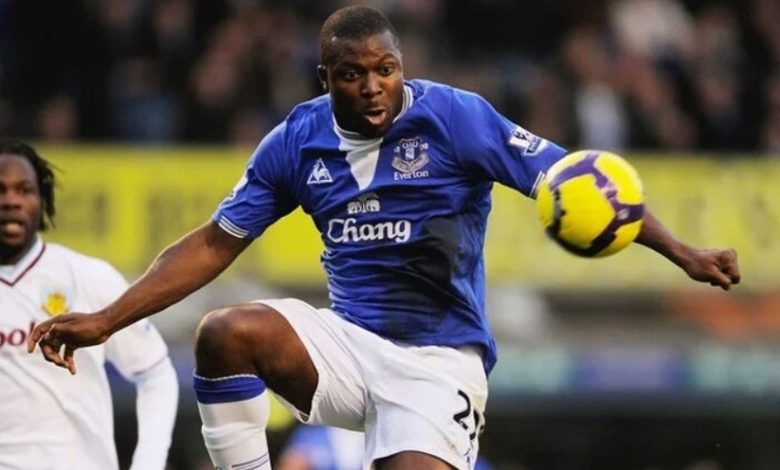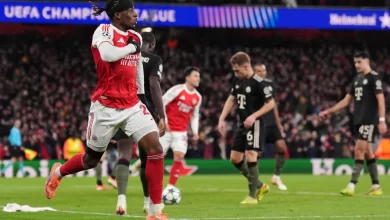‘It doesn’t matter how you win your games’: Yak says Arsenal’s set-piece strength is no weakness

Former Everton striker Ayegbeni Yakubu has dismissed criticism of Arsenal’s reliance on set pieces, insisting that it ‘doesn’t matter how you win your games’ as long as results keep coming.
Arsenal have been devastating from dead-ball situations this season, with half of their 24 goals ahead of the Bayern Munich clash coming from corners and free kicks. Jurrien Timber added another in the 3-1 victory over the German champions, finishing off a routine straight from the training ground.
Bayern were well aware of the threat, with Harry Kane warning against conceding corners and Joshua Kimmich accusing Arsenal of ‘relying on set-pieces’ and ‘loving long balls.’
Yet neither could stop Mikel Arteta’s side, who remain top of both the Premier League and Champions League tables.
Speaking to Tribal Football via Sports Casting, Yakubu argued that Arsenal’s approach is simply part of the evolution of the modern game.
‘It doesn’t matter how you win your games. You have to find a way to win your games. I remember back then, when you went to Stoke City where Rory Delap used to take long throw-ins, and it is the same again now,’ he said.
‘I think when you look at the way the Premier League is now compared to last year. They do play the long ball now, not like before when they just wanted to pass it. Most of the team now have to play long balls. So go for the second ball, go for the third ball.’
Yakubu also praised Arteta for shaping Arsenal’s identity around a pragmatic but effective style.
‘It is getting changed by the day. You can’t just be passing and passing. You want to win games. So it depends on you. You want to play fancy football? You might not win a trophy. Play fancy football and end up relegated? It’s up to you. Then you get sacked.
‘When you look at the teams now, they’re playing really, really good football. Passing short, long, short, long. The goalkeeper needs to be really, really good with his feet too. It’s better now than before.’




